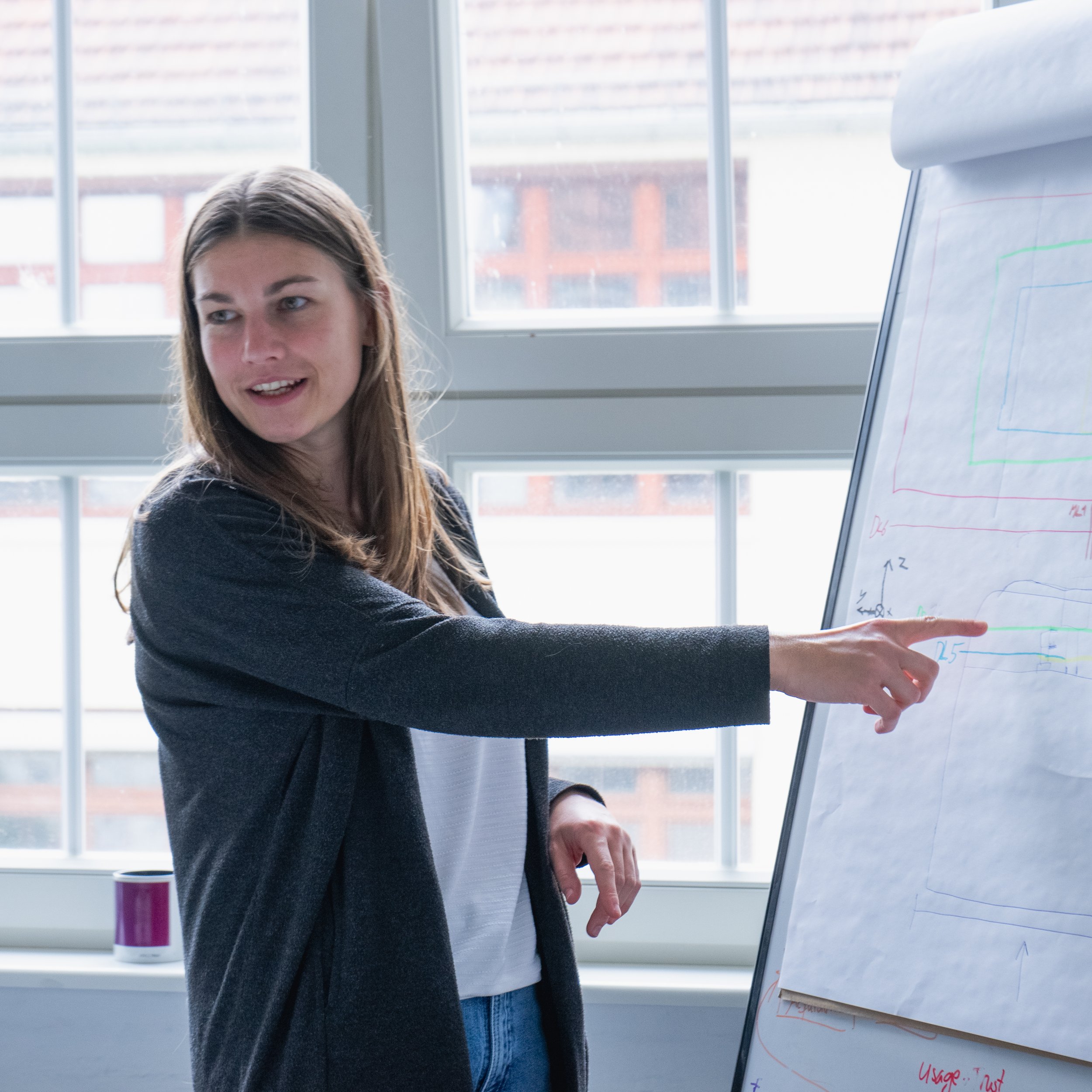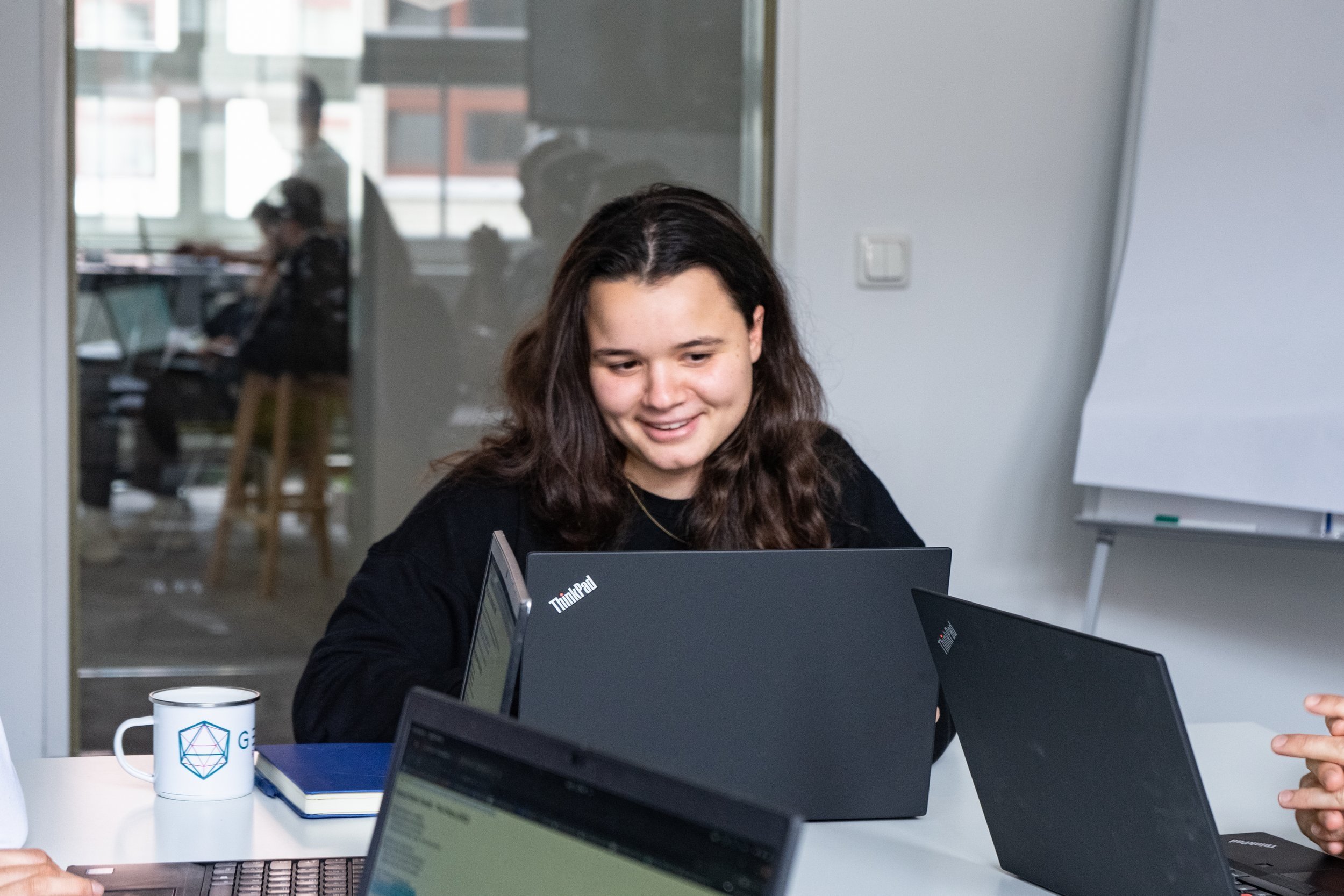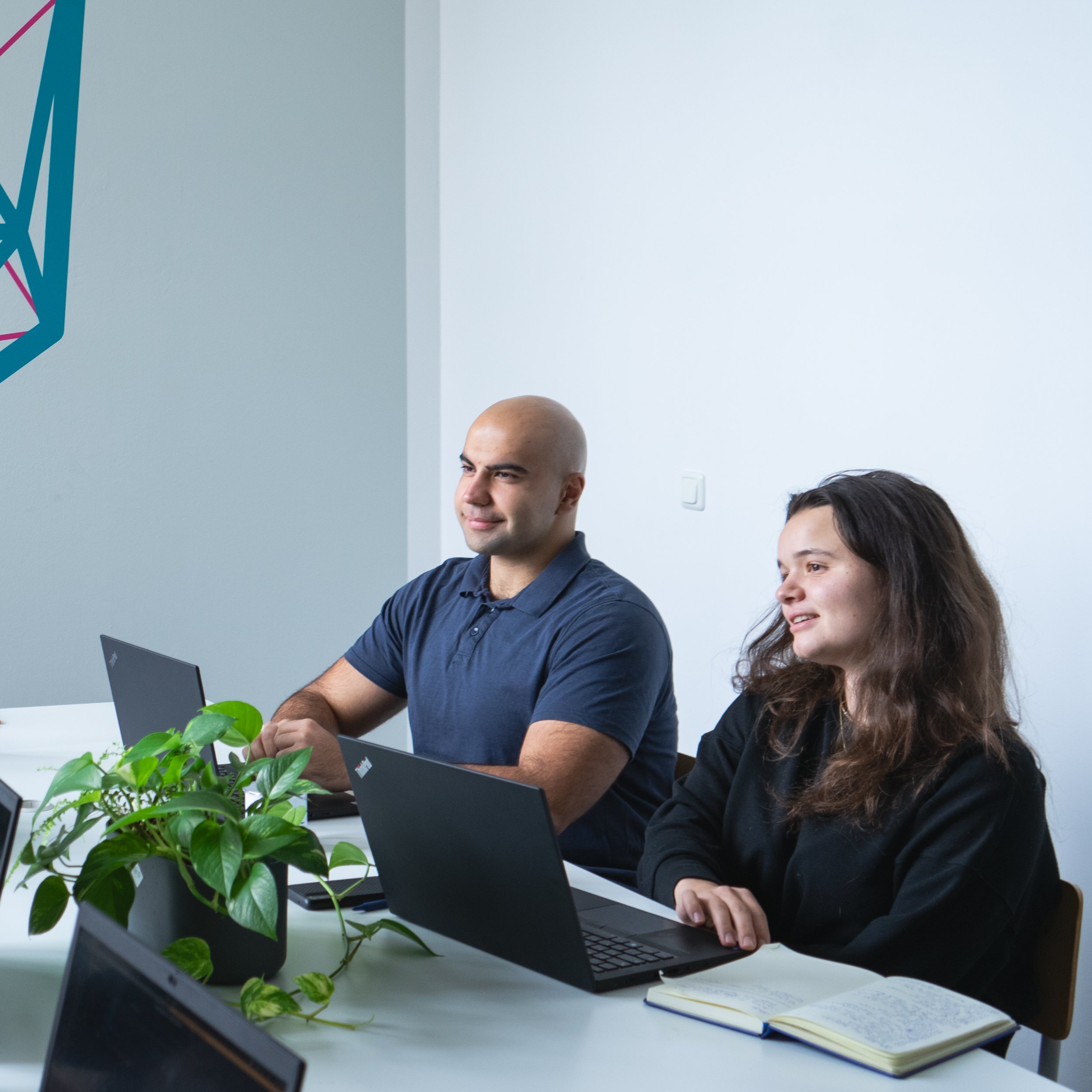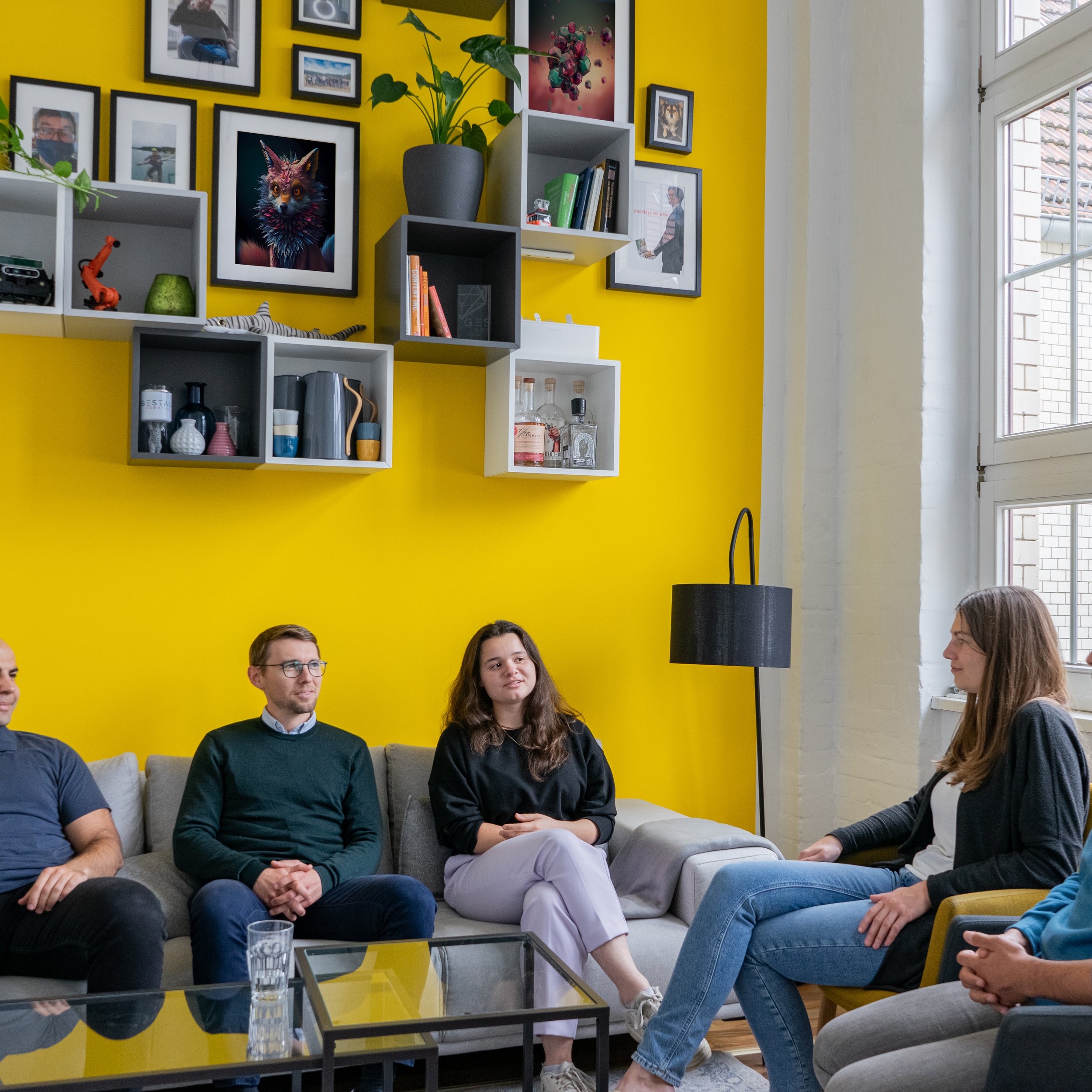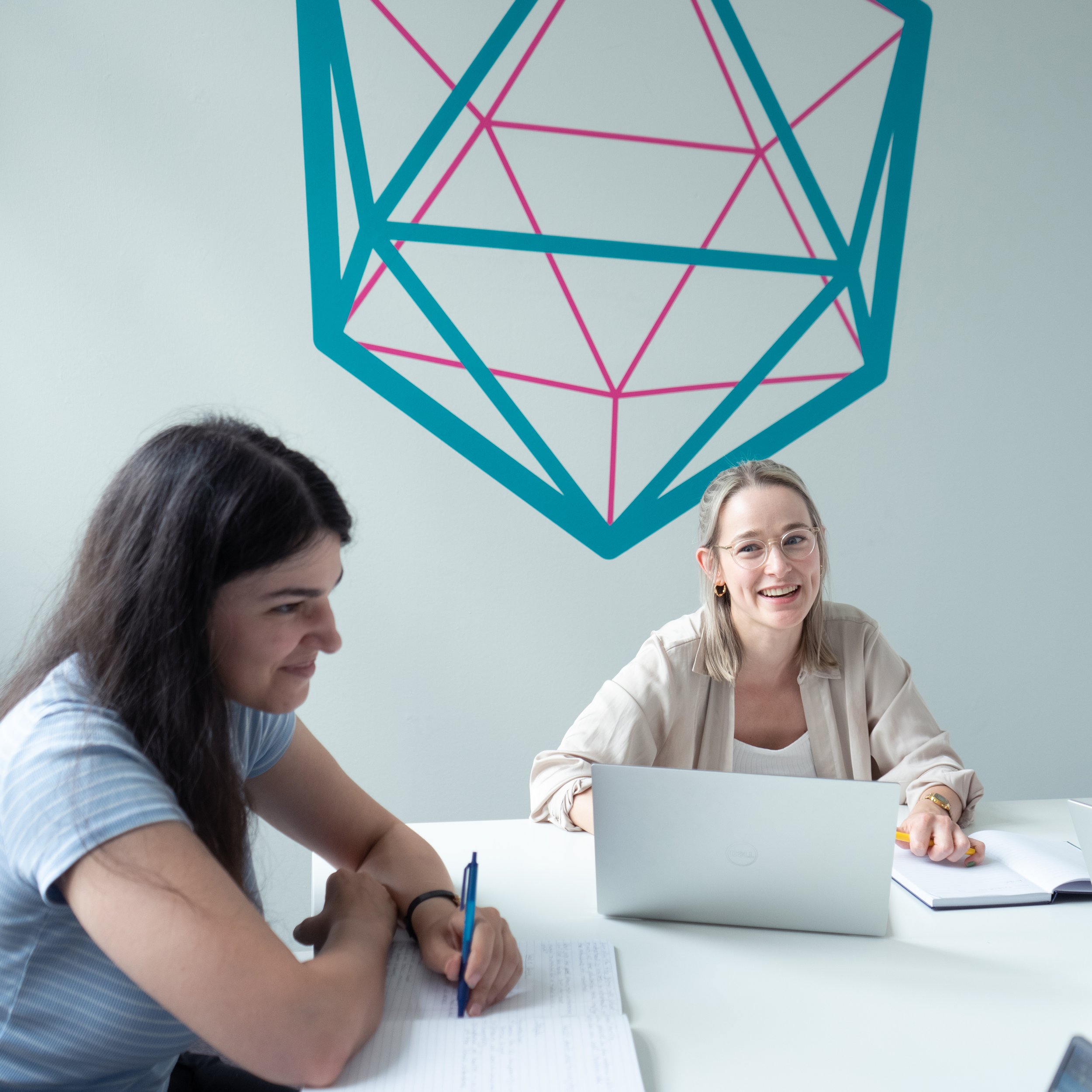Women in AI Professions - An Interview
Women are unfortunately still underrepresented in AI professions. So far, it is mainly men who develop AI systems, which leads to prejudice. In order for something to change in the industry, more female role models are needed in the public and new workplace culture. What are the biggest obstacles for women in the AI industry? What makes a good employer? What should the future of the AI industry look like? We asked three of our female colleagues about all the questions. You can read the answers from Nina, Tabea and Kara here.
What are the biggest obstacles for women in AI?
The numbers are not euphoric. According to a study, women in Germany are still underrepresented in AI professions. In 2019, it was only 16 percent. Worldwide, the situation looks only slightly better. The Gender Gap Report still speaks of 30 percent women in AI professions. What are the biggest obstacles for women in the industry?
Nina (Software Developer):
In school I was the only woman in the physics elective, later often the only one in the lecture halls and in a previous job the only woman in the company. I still encountered gender stereotypes and unconscious biases. The fact that I had a female supervisor in my master's thesis and am now working with other women in the field of AI is something I find very encouraging.
I think representation matters, seeing more women in leading positions in AI and robotics can encourage other women to seek similar positions and also helps making decisions that take into account the challenges women face.
Tabea (Software Developer):
Women are still underrepresented in the field of AI and are often not taken as seriously compared to their male peers. This can hinder women to advance in their AI careers. To overcome these obstacles, I think it is important to address the gender biases and increase the visibility of women in AI.
I also believe that diversity is crucial for fair AI development. AI algorithms are trained on data, and when that data is already biased, such as in relation to gender, the AI model will inherit those biases.
Kara (Trainee in Robotics):
Imposter syndrome hinders women in robotics from sharing ideas and contributing fully to discussions. This not only leads to women not being able to showcase their full capability, but is also detrimental to confidence and comfort in the workplace.
One way to help overcome this is to create spaces within work where women get the opportunity to work together, in teams led by women or in teams, in which women are the majority.
What makes a good employer?
There are usually several factors that make a good employer. The portal Kununu, for example, names "a good working atmosphere", "opportunities for further development" and "work-life balance" as decisive. What do Tabea, Nina and Kara like about their work at Gestalt Robotics?
Nina (Software Developer):
What I really like is the wide range of projects with similar application areas, but from quite different industries. But also the flexibility within the company to be able to contribute and take responsibility through one's own initiative is great. On a more personal note, I enjoy the team spirit that we foster through organizing workshops, hackathons and after work gatherings.
Tabea (Software Developer):
The atmosphere and work culture at Gestalt is great. The people are fun and always eager to help. Besides, there are many opportunities at Gestalt to bring in your own ideas and suggestions. Gestalt's clients come from various industries. Thus, in each project you can learn various aspects of industrial processes and solve different problems.
Kara (Trainee in Robotics):
Personally, I like that I can always work with new solutions in mobile robotics at Gestalt and that we have the capacity for real world testing. There are also large industrial projects. Besides this, at Gestalt I can see an active effort to create a safe and respectful work environment - in effect, the people are great!
What should the future of the AI industry look like?
How does the industry need to change so that AI systems are developed fairly and without prejudice in the future? How do we get there?
Nina (Software Developer):
I consider a diverse team of developers in the AI industry to be desirable, as it brings in different perspectives that result in more creative problem-solving. AI models learn from the data they are fed, so if the data is biased, the output will also be biased. A diverse team can help reducing bias in the AI systems developed.
In the future, I hope that more participation of women in AI helps to ensure that the technology will be beneficial and fair to everyone. Within companies, having more women involved in AI could lead to equitable and inclusive workplace cultures.
Tabea (Software Developer):
Tabea: There are many initiatives that showcase the great work women in AI are doing. I hope that increasing the visibility of women in the field encourages more women to consider a career in AI.
Kara (Trainee in Robotics):
Women’s participation in AI has the potential to shift the direction of AI. There are many questions surrounding the use and the ethics of AI that would be addressed more consistently and wholly before and in development.
Conclusion:
Our mini-series on Women in AI has shown us that it's the little things that really matter. If the industry is to change towards more diversity, we need more female role models and a new work culture.


